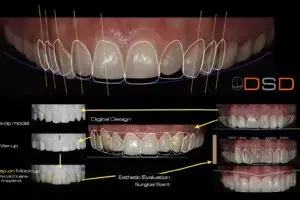Visiting the dentist is a crucial component of maintaining optimal oral health. However, for many individuals, the prospect of a dental appointment can evoke intense fear and anxiety. Dental anxiety effects extend beyond mere discomfort, impacting both oral health and overall well-being. Understanding and addressing dental anxiety is essential not only for preserving your smile but also for enhancing your quality of life.
Understanding Dental Anxiety
Dental anxiety can stem from various sources, including past negative experiences, fear of pain, or even the sound of dental instruments. It’s important to recognise that dental anxiety is not just about the fear of dental procedures but also about the anticipation of discomfort and the feeling of helplessness during treatments. This anxiety can lead to avoidance of dental visits, resulting in neglected oral hygiene and the progression of dental problems.
Dental Anxiety Effects are far-reaching. Individuals who avoid regular dental check-ups may experience worsening dental issues, such as cavities, gum disease, and even tooth loss. These untreated conditions can lead to more severe health problems, including heart disease and diabetes, highlighting the importance of addressing dental anxiety proactively.
The Impact of Dental Anxiety on Oral Health
Avoiding regular dental check-ups due to anxiety can have serious consequences. Without routine visits, minor issues like cavities or gum disease can escalate into more significant problems, requiring extensive and often more painful treatments. Moreover, untreated dental issues can affect your overall health, contributing to conditions such as heart disease and diabetes. The financial and emotional costs of delaying dental care can be substantial, making it imperative to address dental anxiety and its effects proactively.
Strategies to Overcome Dental Anxiety
Overcoming dental anxiety involves a combination of psychological approaches and practical strategies. Cognitive Behavioral Therapy (CBT) has proven effective in helping individuals manage their fears by identifying and altering negative thought patterns. Additionally, mindfulness and relaxation techniques, such as deep breathing and meditation, can significantly reduce anxiety levels before and during dental visits.
Practical tips, such as choosing the right dentist and effectively communicating your fears, can also make a substantial difference. Select a Comfort-Focused Dentist who understands and prioritises your comfort can transform your dental experience. Scheduling appointments at convenient times and ensuring a supportive environment can further alleviate anxiety.

Modern Solutions for a Comfortable Visit
Advancements in dental technology and sedation options have revolutionised the dental experience, making it more comfortable and less intimidating. Sedation dentistry offers various levels of sedation, from mild relaxation with nitrous oxide to deeper sedation with intravenous options, tailored to meet individual needs. These modern solutions ensure that even the most anxious patients can undergo dental procedures with minimal discomfort.
Moreover, dental offices are increasingly focusing on creating calming environments. Comfortable seating, soothing colors, and the availability of distractions like music or videos can help ease anxiety. Technological improvements, such as quieter dental instruments and less invasive procedures, contribute to a more pleasant and fear-free dental visit.
Patient Stories and Testimonials
Hearing real-life experiences from others who have overcome dental anxiety can be incredibly encouraging. Patient stories highlight the effectiveness of various strategies and treatments, providing hope and motivation for those struggling with fear. Testimonials often emphasise the compassionate care provided by Comfort-Focused Dentists and the positive outcomes achieved through modern dental practices.
Building a Positive Dental Experience
Creating a positive dental experience starts with finding a supportive and understanding dental team. A Dentist who prioritises patient comfort and employs anxiety-reducing techniques can make a significant difference. Open communication with your dentist about your fears and preferences allows for personalised care tailored to your needs.
Additionally, incorporating preventive oral care into your daily routine can reduce the need for extensive dental treatments, thereby minimising anxiety triggers. Regular brushing, flossing, and maintaining a healthy diet contribute to better oral health and fewer dental issues.
Conclusion
Overcoming dental anxiety is a journey that requires understanding, patience, and the right support. By addressing the root causes of your fear and implementing effective strategies, you can transform your dental experience from one of dread to one of comfort and confidence. Embracing modern dental solutions and seeking care from a Dentist can ensure that your visits are as stress-free and pleasant as possible.
Taking the first step towards overcoming dental anxiety can lead to significant improvements in your oral health and overall well-being. Don’t let fear hold you back from achieving a healthy, vibrant smile. Reach out to a supportive dental professional today and embark on your path to a more comfortable and positive dental experience.


